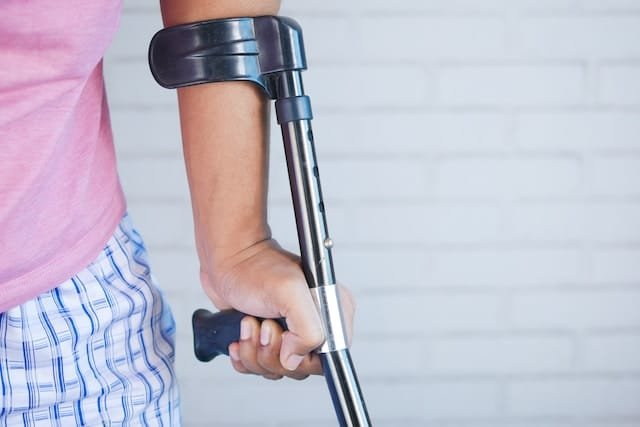When people have medical issues, it’s essential to make wise decisions. These may involve finding the path to healthy weight loss or consulting a lawyer following an accident. The latter could involve a slip and fall, a car collision, or some other unfortunate incident. In this article, we’ll discuss the essential legal steps to take after a personal injury accident.
Seek Immediate Medical Attention
Many injuries may not be apparent at first, as adrenaline can mask pain and symptoms. By seeking medical attention right away, potential injuries can be diagnosed and treated promptly. In turn, this can prevent any long-term complications. Moreover, timely medical treatment contributes to the strength of your personal injury claim. Insurance companies often rely on documentation from medical professionals, in order to assess the seriousness of an injury.
The longer you wait to seek medical help, the more difficult it becomes to establish a direct link between the accident and your injuries. This could potentially weaken your case or even result in a denial of your claim. Seeking immediate medical attention shows that you took the necessary steps to mitigate any damages caused by the accident. Insurance companies may otherwise argue that delaying treatment has worsened your condition, or that other factors were responsible for your injuries.
Consult With A Personal Injury Attorney
Although it may seem inconvenient or unnecessary in some cases, receiving legal advice can significantly impact the outcome of your case. A personal injury attorney brings valuable knowledge and experience to the table. They understand the maize of personal injury law, and can steer through the legal system on your behalf. They can also ensure that your rights are safeguarded at all times. Lawyers can gather evidence, interview witnesses, and negotiate with insurance companies. In turn, their expertise ensures that you receive fair compensation for your injuries, and any other damages suffered.
Emotions can run high after an accident, making it difficult to make sound decisions. Fortunately, an attorney can act as an unbiased advocate. They’ll consider all aspects of your case objectively, and advise you on whether to pursue litigation or settle out-of-court. They can also help with complex cases, where liability is disputed or where multiple parties are involved. The people who visit the website for Brandenburg & Rees, LLP confirm that folks want to schedule consultations online, and see office location maps. They want to view verdicts and settlements, legal team photos, and client testimonials.
Gather Evidence And Document The Accident
This evidence will help prove liability (if someone else was at fault) and establish the extent of your injuries. Firstly, take photographs or videos of the accident scene from multiple angles. These visuals can provide important details about things like road conditions, skid marks, car debris, traffic signs or lights – and any other factors that could have contributed to the accident. Additionally, document your injuries by taking photos immediately after the accident, and throughout your recovery process. Take the contact details of the other parties involved, plus their driver’s license and insurance information.
Furthermore, gather witness statements if possible. Eyewitness accounts can be invaluable in proving fault and demonstrating how the accident unfolded. Also, obtain names and contact information from anyone who witnessed the incident or saw its aftermath. Their statements may corroborate your version of events and strengthen your claim. Remember to collect all relevant documents associated with the incident. This includes:
- police reports
- medical records
- bills for treatment or therapy related to your injuries
- insurance correspondence regarding coverage limitations or denials
- any proof of lost wages due to time off work

File An Insurance Claim Or Lawsuit
One avenue to consider is filing an insurance claim with the responsible party’s insurance company. This may seem like the most straightforward option, as it allows you to negotiate a settlement, without going through the lengthy process of a lawsuit. However, it’s important to remember that insurance companies are often focused on minimizing their payouts. As a result, they could seek to undervalue your claim. It’s essential to have experienced legal representation at this time. This can ensure that your rights are protected, and that you receive the fair compensation you deserve.
Your negotiations with the insurance company could fail, or they could refuse to offer a reasonable settlement amount. In this situation, filing a lawsuit may be necessary. While they can be much more time-consuming and complex than insurance claims, they provide an opportunity for you to present your case before a judge or jury. In turn, they’ll determine fault and ultimately award damages if appropriate. Filing a lawsuit sends a strong message that you’re determined to fight for what’s rightfully yours, holding those responsible accountable for their negligence/wrongdoing. An experienced attorney can handle all legal aspects, while advocating fiercely for your best interests.
Negotiate A Settlement Or Go To Trial If Necessary
This is often seen as the quickest and most efficient way to resolve a personal injury case. It allows both parties to avoid the time, expense, and uncertainty of going to trial. However, reaching a fair and favorable settlement requires careful preparation and strategy. As we said earlier, you need to gather strong evidence to support your claim. Presenting this in a clear and concise manner can help strengthen your position during negotiations.
Trials can provide an opportunity for both sides to present the evidence and arguments before a judge and jury. This could prove crucial in situations where liability is disputed, or when determining the extent of damages becomes contentious. Going to trial can bring more attention and scrutiny from media outlets. This may put additional pressure on the responsible party to cooperate or reach a favorable resolution before proceedings commence. Ultimately, choosing whether or not to go forward with a trial depends on various factors specific to your case and the desired outcome.
Taking these legal steps will greatly increase your chances of receiving the justice you deserve. Thanks to your legal advocate, you’ll hopefully gain the compensation you require. You can then pay your bills, focus on recovery, and move on with your life.


